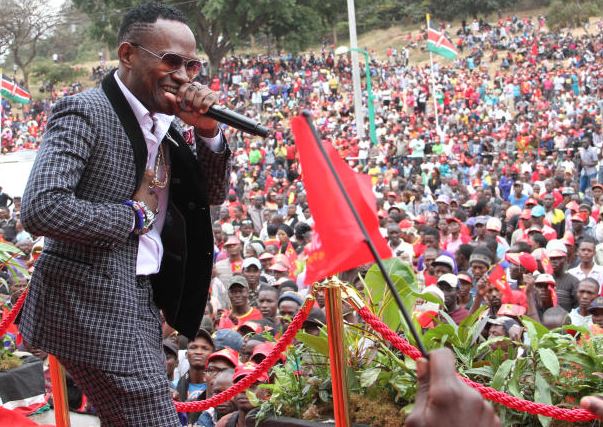×
The Standard e-Paper
Join Thousands Daily

It has been three years since famed Tanzanian singer Lucas Mkenda aka Mr. Nice moved to live in Kenya. It is here that he established his music recording studio. Dubbed Takeu Music Empire, his music trademark, the singer has made a slow, but sure, comeback move.